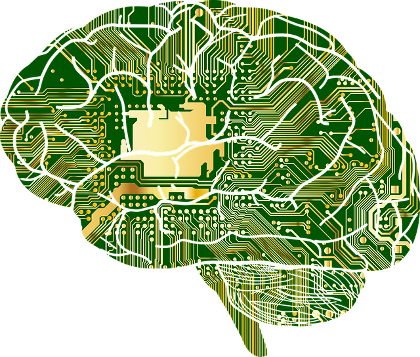Towards Artificial Minds 1: Introduction

Source: Pixbay.com
I've been very quite here on Steem during the last few weeks (or months). The reason why I wasn't writing any lengthy posts was simple because I had a lot of things to do for my studies. As always finishing the semester took much longer than expected and I spend most of my time I didn't spend at work on finishing this (apart from a short vacation over my birthday, which I spent on Malta).
However, I was still writing a lot for my studies and now I want to share this things with you. The following "mini series" on artificial minds was originally my paper for a philsophy of mind seminar. It is about artificial intelligence, its basics, recent breakthroughs and some philosophical inquires about those recent developments. For a paper that's supposed to be philosophical it is admittingly very heavy on math (which will be the second part of this mini-series), but nothing more complicated than basic high-school maths.
I split my original paper into three parts and slightly edited them. The original paper is 16 pages long and I guess it would be too much for a platform like Steem, but if you want to read the original PDF, just tell me in the comments, I'd be happy to share it with you.
Introduction
Research on artificial intelligence has a surprisingly long history, the "official" beginning of academic research on artificial intelligence is generally seen as the Dartmouth Summer Research Project on Artificial Intelligence, which took place in the summer of 1956 at Dartmouth College in Hanover, New Hampshire. It was proposed by John McCarthy, Marvin Minsky, Nathaniel Rochester and Claude Shannon in 1955 [MMRS06]. Since then not only the academic research on artificial intelligence has come a long way, but artificial intelligence is also used in manifold practical applications: from pointing out what books might be of interest to recommending which videos to watch next, nowadays a lot of people carry an artificial intelligence system in their pockets1, but are not really aware of it.
The possibilities, implications and possible dangers of artificial intelligence have always been a great source of inspiration for the science fiction genre over different media, from there artificial intelligence and everything it is connected with, made their way back into the (pop) cultural memory, which then led to certain attitudes and expectations towards artificial intelligence2.
In this mini-series I first want to give a concise introduction to artificial intelligence in order to give a basic understanding of the field. Later on I will write about recent developments in artificial intelligence. During its history, the field of artificial intelligence has already had some periods in which it was thriving and some periods in which hardly any progress was made and artificial intelligence was almost abandoned [Mue16], but the last ten years have been again a very fruitful period for artificial intelligence, from a research point of view as well as from an applied point of view. Those recent developments have been the basis for a lot of speculation about what artificial intelligence can (and especially) will do to society and the individual human being. In the final section I will try to integrate the foundation that I laid earlier with a more philosophical point of view, in order to tackle ethical issues that arise from artificial intelligence as well as common misconceptions regarding the field and its possibilities.
Bibliography
[MMRS06] John McCarthy, Marvin Minsky, Nathaniel Rochester, and Claude Shannon.
A proposal for the dartmouth summer research project on artificial intelligence, august 31, 1955.
AI magazine, 27(4):12, 2006.[Meu16] Luke Muehlhauser.
What should we learn from past ai forecasts?, 05 2016. Online, accessed 2018-02-18.[MVH09] Karl MacDorman, Sandosh Vasudevan, and Chin-Chang Ho.
Does japan really have robot mania? comparing attitudes by implicit and explicit measures.
AI & society, 23(4):485-510, 2009.
Footnotes
1 Or a device which is able to run artificial intelligence applications to be more precise. The curious thing about smartphones is, that they also have the word "smart" in their name, which somehow suggests an affinity to artificial intelligence, even though I think that this was never really the intention to link the name of a phone with extensive computational capability to artificial intelligence.
2 The attitude towards artificial intelligences is also strongly dependent on the cultural background: in western (pop) culture artificial intelligences are commonly shown as thread, something that has the tendency to get out of control and "run amok", while in Japan the portrayals of artificial intelligences (especially robots) are generally more positive [MVH09].